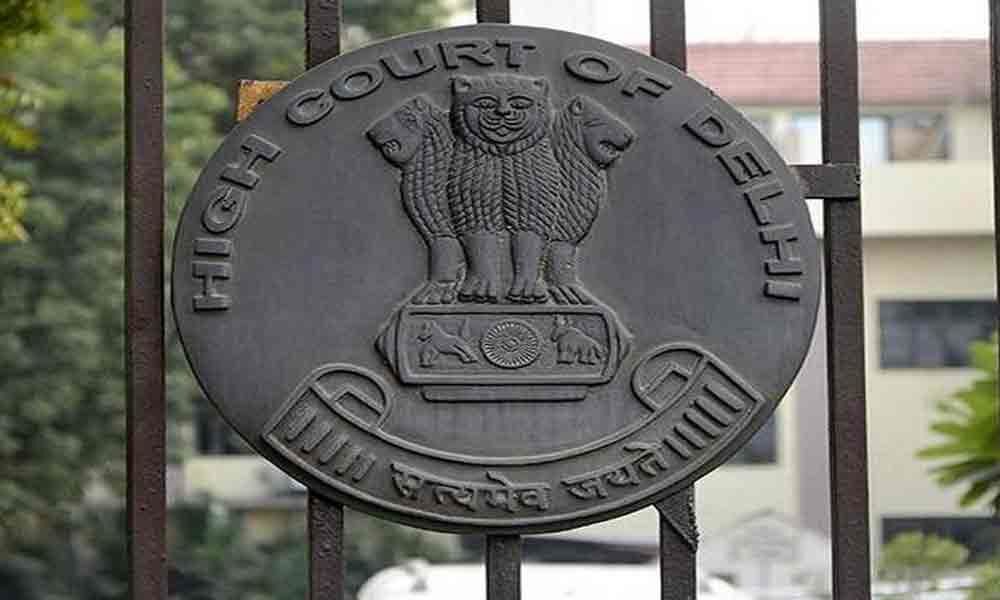HC says not okay with AAP government way of dealing FPS grievances
 HC says not okay with AAP government way of dealing FPS grievances
HC says not okay with AAP government way of dealing FPS grievancesThe Delhi High Court on Friday said it was not satisfied with the way the AAP government was proceeding in the matter relating to framing of rules for grievance redress and accountability under the food security law and sought an exact timeline of action.
New Delhi: The Delhi High Court on Friday said it was not satisfied with the way the AAP government was proceeding in the matter relating to framing of rules for grievance redress and accountability under the food security law and sought an exact timeline of action.
A bench of Chief Justice Rajendra Menon and Justice A J Bhambhani asked a senior officer of Food Supplies and Consumer Affairs Department to appear before it on May 9. "We are not satisfied with the manner in which the respondents are proceeding. We direct the respondent officer to appear before us and tell us the correct and exact timeline on which action will be taken...," the bench said.
The court order came after perusing an affidavit filed by the Food Supplies and Consumer Affairs Department in response to a contempt petition by an NGO which claimed that the authorities have failed to comply with the High Court's September 2017 directions regarding implementation of grievance redress and accountability measures under the National Food Security Act (NFSA).
In the affidavit, the government has informed the court that it is considering framing rules for grievance redress and accountability under the food security law. Petitioner NGO Delhi Rozi Roti Adhikar Abhiyan, in its main petition, has sought disbursal of subsidised foodgrains to beneficiaries under NFSA without Aadhaar cards.
The high court in its September 2017 order had directed the Delhi government to examine the Model Rules suggested by the central government on distribution of food by fair price shops (FPS) and take steps in accordance with the provisions of the NFSA, 2013, in four weeks.
The Delhi government's affidavit showed that the file regarding framing of rules for grievance redress has been transferred between various departments and ministries, but no concrete action has been taken yet. The affidavit ends by stating that the matter of setting up the statutory grievance redress framework under NFSA as directed by the court is currently under consideration and sought disposal of the contempt plea.
"The Department (food supply) examined the matter and proposed vide note dated January 9, 2019, to forward to the Law Department through the office of Minister Food Supply and Consumer Affairs on January 9, seeking its opinion on whether the department may incorporate the provision of 'door step delivery of ration' into the grievance redressal rules," it said.
In the contempt plea, the NGO alleged there is continuous, willful and deliberate non-compliance of the court's order. "Non-compliance of the said order is effectively non-implementation of statutory mandates of the NFSA and amounts to denial of access and/ or difficulty to access the fundamental right to food of a vast number of residents of the National Capital Territory of Delhi," it said.
It had said that the state shall examine the provisions regarding creation of the State Food Commission and take appropriate steps in this regard. The NGO had moved the court claiming that some slum dwellers in south Delhi were facing difficulties in getting subsidised foodgrains under the PDS due to lack of Aadhaar cards.
Under the NFSA, five kgs of foodgrains per person is provided each month at Rs 1-3 per kg to over 80 crore people. Aadhaar is a 12-digit unique identification number issued by the Unique Identification Authority of India (UIDAI) after collecting biometric data of the citizens. The PIL plea has sought quashing of the Centre's February 8, 2017 notification making Aadhaar mandatory for availing benefits under the NFSA.
The notification came into effect from February 8, 2017 in all states and UTs, except Assam, Meghalaya and Jammu and Kashmir. The petition has said the notification violates the basic principle of law enshrined in Articles 14 (equality) and 21 (right to life) of the Constitution.







